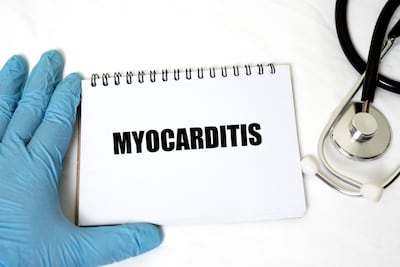Cell & Gene Therapies
The Brazilian government wants to boost the country’s capabilities to develop radical innovation that leads to new therapies for the national health system.
Changing regulatory standards for cell and gene therapies extend the flexibility with manufacturing while the tabelecleucel complete response letter showed high expectations for rigor in clinical trials.
The EU’s draft Biotech Act promises faster clinical trial approvals and innovation incentives, but the industry warns that intellectual property provisions have limited appeal.
Experts said the impact of the planned approval standard changes are difficult to assess given the potential for flexibility outlined in the JAMA article, as the FDA again eschews guidance and public comment in making new policy.
The agency wants to ensure orphan drug sponsors cannot benefit from fee exemptions while gaining approval of non-orphan indications.
However, the agency updated warnings on myocarditis risk and mitigation for the gene therapy, including more specific information about its severity and timeframe for occurrence in Duchenne muscular dystrophy patients.
Aspen Neurosciences and BlueRock Therapeutics see hope for artificial intelligence to improve the quality of cell therapies to replace dopaminergic neurons in Parkinson's disease.
While there is a general shift towards alignment and collaboration in health technology assessments in the EU under the new HTA Regulation, member states still have “their own recipe” when it comes to making reimbursement decisions.
While the volume of questions that companies have received from the EU member states under the Health Technology Assessment Regulation has been lower than expected, some firms are struggling with the comparator analysis required to answer some questions, an expert says.
England is set to become the first market outside of the US where Autolus’ CAR-T therapy Aucatzyl is reimbursed for acute lymphoblastic leukemia, after the country’s health technology assessment institution, NICE, recommended its use for certain patients.
In an email to staff filled with unsupported accusations about the quality of the center’s research, CBER Director Vinay Prasad said no resources or time should be spent on ongoing projects started before he joined the FDA until discussed with him.
After two deaths tied to the gene therapy, Sarepta and the FDA agreed to new labeling for Elevidys, adding a black box warning about liver injury along with suggested liver and cardiac monitoring.
UniQure’s Huntington's disease filing plans are in disarray after the FDA reversed course on the company's regulatory strategy employing real-world evidence and accelerated approval.
The UK drug regulator is planning to introduce a “flexible, proportionate” licensing and registration model for rare diseases, which could see drugs granted provisional approvals based on “appropriate, albeit limited” evidence.
A new 10-year, government-supported R&D program in China will focus on new targets and emerging technologies which can be translated into first-in-class drugs and give birth to top players in the global pharma industry.
The ARPA-H program is making individualized genetic therapies a new research priority, including the “THRIVE” grant program, which will seek genetic platforms beyond AAV and CRISPR, and “GIVE,” which will support bedside manufacturing for RNA therapies.
The FDA cannot “rest on its laurels” when it comes to advancing cell and gene therapy regulatory advances, the acting head of the Office of Therapeutic Products said. Leveraging knowledge across programs could be a key.
One clear message from a US FDA listening session on leveraging knowledge across cell and gene therapy products is sponsors want more guidance on how the FDA’s new platform therapy pathway will function.
The guidance on post-market surveillance is one among a trio of new guidelines related to cell and gene therapies in the post-Peter Marks era.
New promotions and social media posts may offer some hints as to the philosophies guiding agency leaders. One CBER appointee stands out for her connections to Arnold Ventures.




















